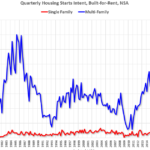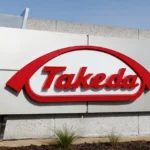
Embarking on the journey to homeownership can be both exciting and overwhelming, especially when surrounded by so many myths and misconceptions. If you’re a first-time homebuyer, you may have heard that renting is more affordable than owning, or that a perfect credit score is essential. But how accurate are these claims? In this guide, we debunk common misconceptions about homeownership and highlight valuable programs available to homeowners. First time home buyers in Vermont and new hampshire.
Whether you’re interested in the actual costs of renting vs. owning, down payment requirements, or financial assistance programs, this article aims to clarify these topics. Read on to turn your dreams of homeownership into an informed reality.
Myth 1: Renting is cheaper than owning.
When comparing renting to owning, it’s important to look beyond the initial cost. At first glance, rent may seem more affordable than rent. monthly mortgage paymentBut a closer look at the numbers reveals a different story.
Homeownership is a long-term investment.Over time, homeowners can increase the equity value of their property and meet future financial goals. Retirement planning. On the other hand, renting provides no investment income and rent is paid directly to the landlord without any personal asset formation.
Myth 2: A 20% down payment is required
You can eliminate the need for private mortgage insurance (PMI) by making a 20% down payment, but it is not required. PMI improves monthly mortgage payment, But you can buy a home without waiting years to save up a big down payment.
Home loan with low or no down payment
VA loan
VA loans designed for veterans, active duty military, and certain National Guard and Reserve officers require a 0% down payment.
FHA Loans
Backed by the Federal Housing Administration, these loans are popular among first-time homebuyers because of their relaxed lending requirements and low down payment options, in some cases as low as 3.5%.
USDA financing
Aimed at promoting homeownership in rural areas, USDA loans have 0% down payments, making them ideal for buyers in the following areas: Eligible rural and suburban areas.
conforming loan
There are several programs designed for first-time homebuyers that offer down payments as low as 3%, reduce private mortgage insurance, and help sellers cover closing costs based on the loan amount. .
state housing authority
both in vermont (VHFA) and New Hampshire (NHHA) We offer a wide range of programs with up to 100% financing, and you may also qualify for grants and second mortgages to help with closing costs and down payment.
down payment assistance
Down Payment Assistance (DPA) is not a loan program, but it can provide significant value during the home buying process. A DPA may come in the form of a grant or second mortgage to help the homeowner with the down payment and closing costs.
Subsidy
Union Bank Selected to Participate in the Federal Home Loan Bank FHLB “Lift Up” Home Ownership Program. The program targets first-time homebuyers of color with incomes up to 120% of the area median income. Lift Up provides up to $50,000 in down payment and closing cost assistance toward the purchase of your first home.
Myth 3: You need to pay off your student loans first.
many young adult They believe that student loan debt must be cleared before buying a home. This misconception can unnecessarily delay homeownership.
debt to income ratio
Lenders consider your debt-to-income (DTI) ratio when applying for a mortgage. This ratio compares your monthly debt payments to your income. Student loans contribute to this ratio, but student loans do not automatically prevent you from getting a mortgage. If you have a steady income and manage your debt well, lenders may consider you a strong candidate.
Credit history and score
Keeping your student loan payments on time can have a positive impact on your credit score. Even if you have student loans, a good credit history can help you apply for a mortgage. Conversely, defaulting on your student loans can hurt your credit score and make it harder to secure a mortgage.
Myth 4: You need a perfect credit score
A higher credit score can lead to better results, but mortgage interest rate The idea that you need a “perfect” score to qualify for a mortgage is a misconception. Here’s what people considering buying a home should know.
different requirements:
Government-backed loans, such as FHA, VA, and USDA loans, often have less stringent credit requirements than conventional loans. For example, some FHA loans accept borrowers with credit scores as low as 580.
Impact on rates:
You don’t need a perfect score, but your credit rating will affect the interest rate you receive. Generally, the higher the score, the more better rateyou can save money over the life of your loan.
Other considerations:
Lenders like Union Bank don’t just take your credit score into consideration. Factors like your debt-to-income ratio, employment history, and down payment size also play an important role. Performing well in these areas can help make up for a lower credit score.
Improve your credit score before home shopping
If you’re preparing to buy a home, here are some practical tips to improve your credit score.
Check your credit report regularly
get. Free annual credit report Check for errors or inconsistencies.
pay your bill on time
To maintain a good credit history, make timely payments on your credit cards and loans. l. Set a reminder or automatic payment Don’t forget the deadline.
Reduction of debt balance
Pay off your credit card balances to lower your credit utilization ratio. A lower ratio can have a positive impact on your score.
Avoid new credit inquiries
Avoid applying for a new credit account close to purchasing a home.
Seek expert advice
Consult a credit counselor or financial advisor We provide personalized strategies to improve your credit standing.
Myth 5: All lenders are the same.
For first-time home buyers in northern Vermont and New Hampshire, there are many benefits to choosing a local bank like Union Bank. since 1891Union Bank offers personalized support tailored to your individual needs. With our deep knowledge of the local market, Union Bank combines the comprehensive services of a major bank with the flexibility and personal touch of a local financial institution, making us the ideal partner for first-time homebuyers. .
Myth 6: Autumn and winter are not good times for shopping.
The idea that spring and summer are the best times to buy a home is outdated. Although more properties are listed during these seasons, fall and winter have their own benefits.
less competition:
There are fewer active buyers this time of year, meaning less competition for available homes, which can lead to better deals.
motivated seller
Sellers who list during the off-season are more motivated to sell, so they have more room to negotiate and may even get a lower price.
Insights into the housing situation
Observing a home in cold weather reveals the property’s insulation, heating system efficiency, and overall resilience to harsh conditions.
Availability of experts
Real estate agents, inspectors, and mortgage brokers may have more availability during the off-season and may be able to provide more focused and expedited service.
Year-end tax benefits
Closing on your home at the end of the year may provide you with tax benefits for the current year, such as mortgage interest and property tax deductions.
Programs to assist first-time home buyers in Vermont
Vermont First Generation Home Buyer Program
This program is specifically tailored to help people who: the first person in the family to own a home. One of the program’s distinguishing features is a generous $15,000 grant designed to ease the financial burden of a down payment.reach out your hand Become an expert at Union Bank You can learn more.
VHFA Home Loan Program
VHFA provides three services First mortgage program for potential homeowners: Move, move MCC, advantage. All three programs offer 30-year fixed-rate mortgages with down payments ranging from his 0% to 5%, as determined by the lender. We also provide assistance with both your down payment and closing costs, saving you up to $825 in Vermont real estate transfer taxes at closing. A notable feature of the MOVE MCC program is a federal tax credit of up to $2,000 per year. However, all programs have specific eligibility criteria.reach out your hand Become an expert at Union Bank You can learn more.
Down payment and closing cost assistance in Vermont
of Assist Program We offer 0% interest loans to first-time home buyers to help with down payment and closing costs. There are no monthly payments and you only pay when you sell your home. This assistance is only available through VHFA’s Move, Move MCC, or Advantage Mortgage programs. The loan amount is up to $15,000 based on the borrower’s income. union bank experts to see if you qualify.
FHLBB Equity Builder Program
of Equity builder down payment support This program is designed to assist potential homeowners by providing up to $15,000 in down payment and closing cost assistance. This program is specifically aimed at first-time homebuyers who meet certain eligibility criteria.If you’re interested, you should Contact Union Bank Check your local area for more information about the Equity Builder program. Funding will be distributed on a first-come, first-served basis, so it’s important to apply as soon as possible. This program is a valuable resource for easing the initial financial burden of purchasing a home, making homeownership more achievable for qualified buyers in Vermont.
FHLBB Housing Employees
of Employee Housing (HOW) This program provides matching grants to help potential homeowners reduce their down payment and closing costs. This initiative is available through local Vermont member financial institutions such as Union Bank. Eligibility for the HOW program is determined by income and other criteria. It is important to note that funding is limited and distributed on a first-come, first-served basis, emphasizing the need to apply early. This program is specifically designed to make homeownership more accessible by reducing the financial challenges associated with purchasing a home.
Programs to assist first-time home buyers in New Hampshire
1st Generation Home Buyer (1stGenHomeNH)
of 1stGenHomeNH Program Provides $10,000 grants to first-generation homebuyers in New Hampshire. First-generation homebuyers are people who, along with their co-borrowers (if any) and a non-borrowing spouse, have never owned a home before. Additionally, the parent or legal guardian of the borrower or co-borrower must not own the home during the homebuyer’s lifetime. People who have been in foster care and are legally in the U.S. with refugee or asylum status are also eligible.
Down payment and closing cost assistance in New Hampshire
Our mortgage initiative provides financial services. Assistance with down payment and closing costs, our most popular program that awards up to $10,000 for these purposes. This assistance is provided as a second mortgage and is fully forgiven after five years unless the property is sold, refinanced, or goes bankrupt within that period. Eligibility is based on income limits, and there are different programs available for different income brackets, such as the Home First program and the Home Flex Plus program. To benefit from this assistance, participants must complete Home Buyer Education.
Powerful support for your homeownership journey
By debunking these common misconceptions, we hope to provide you with the knowledge you need to navigate the home buying process with confidence. With the right information and resources, your dream of owning a home in Vermont and New Hampshire can become a reality.
if you are there vermont state or new hampshire If you’re ready to take the next step, Union Bank is ready to guide you. With our deep-rooted expertise and commitment to superior service, we help make your home buying experience seamless and rewarding. Don’t be fooled by misconceptions.Please contact us Union Bank Team Today Embark on a journey to find the perfect home. We are here to help you every step of the way.











